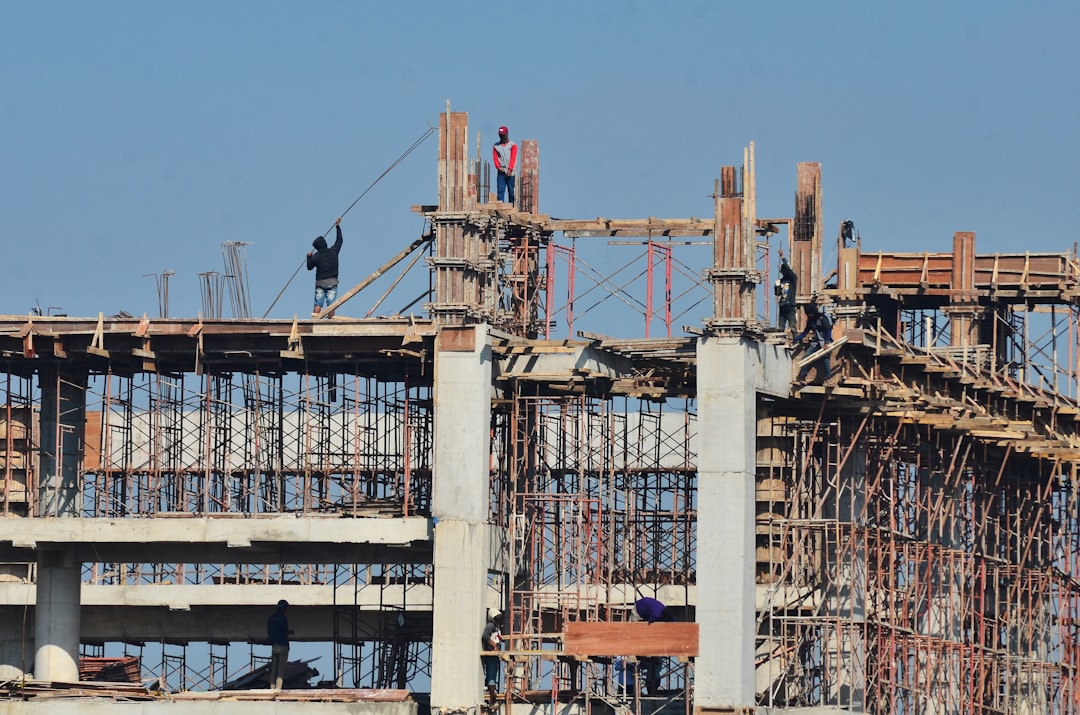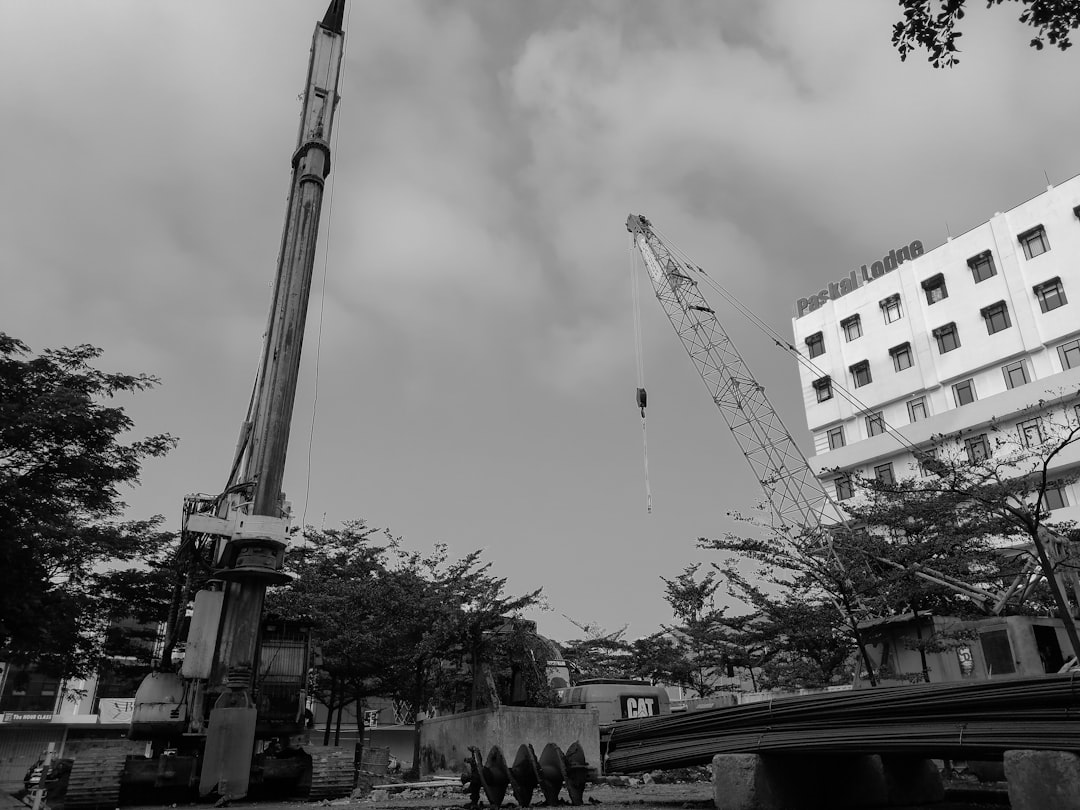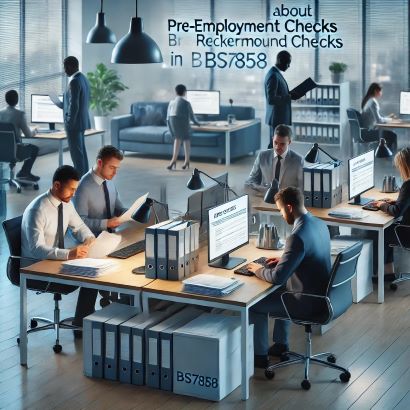

The primary purpose of BPSS checks is to establish a reliable baseline of security clearance for individuals to ensure they meet specific standards of trustworthiness, integrity, and reliability. Alongside these, national identity cards or residence permits may also be accepted to establish your identity accurately. In conclusion, BPSS clearance is an essential component of the security framework within many organizations, particularly those involved with the UK government or national security.
BPSS checks are designed to serve as a preliminary screening for individuals seeking to work in sensitive or secure environments, particularly within the government or its contractors. right to work checks as well as a basic dbs checks are part of bpss clearance in the uk. The verification of essential documents plays a pivotal role in the recruitment process requirements for obtaining BPSS clearance.
In these sectors, verifying the eligibility and trustworthiness of individuals handling government-related tasks is essential. Additionally, government contracts frequently require BPSS checks as a preventive measure to enhance security measures.
Hence, BPSS checks are an essential aspect of security practices for entities associated with the UK government. BPSS does not have a formal ongoing monitoring or renewal policy; it is primarily conducted at the time of hiring.
In contrast, DBS checks might need to be renewed more frequently, especially for positions involving regular contact with vulnerable groups. For compliance, it is vital that employers keep records of the documents checked as part of the right to work process. To grasp the significance of BPSS screening, consider its role in verifying essential personal and professional details for individuals in sensitive positions with access to government assets.
Ultimately, BPSS clearance plays a critical role in maintaining a secure work environment, reducing risks, and building trust in recruitment processes and decision-making. The initial stages of a BPSS check involve gathering personal information from the candidate, including identity documents, employment history, and nationality status.

Follow our guide to apply for BPSS clearance successfully.
Posted by Jasmine Roberts on 2024-10-08

Keep your BPSS clearance active with proper renewals.
Posted by Jasmine Roberts on 2024-06-24
Posted by Jasmine Roberts on 2024-06-14

Learn how employers can ensure BPSS compliance.
Posted by Jasmine Roberts on 2024-06-08

Avoid these common BPSS clearance application mistakes.
Posted by Jasmine Roberts on 2024-05-29

Discover what employers verify during BPSS checks.
Posted by Jasmine Roberts on 2024-05-10

Learn the essential requirements for BPSS clearance approval.
Posted by Jasmine Roberts on 2024-04-27

Learn the differences between BPSS and CTC clearance.
Posted by Jasmine Roberts on 2024-02-10
Military personnel, from soldiers to strategists, also require BPSS clearance due to their access to classified military operations and strategic information. It ensures that individuals handling classified information or involved in security-sensitive activities are appropriately vetted and continuously monitored throughout their employment. These checks serve as a first line of defense, ensuring that individuals employed in positions of trust are properly vetted to safeguard national security and the integrity of public services.

Unlike BPSS checks, DBS checks are required for positions involving contact with vulnerable groups, such as in teaching, healthcare, and social services. Verifying identity and right to work involves checks against databases and sometimes contacting issuing authorities, especially if there are concerns over the authenticity of the documents. BPSS checks are generally quicker to complete, often within a few weeks, reflecting their role as a baseline security measure.
Remember, attention to detail in gathering these documents could be the difference-maker in your clearance journey. Providing evidence of at least three years of employment history is an important requirement for BPSS clearance.
For positions within the UK government and its contractors, BPSS clearance is not just a formal requirement but a critical security measure. Ensuring that individuals have BPSS clearance helps maintain national security and reduces the risk of insider threats.
Conversely, BS7858:2019 can require a more thorough examination, potentially including spent convictions and other details depending on the risk assessment of the specific job role, reflecting its focus on positions where security is critically important. By ensuring that employees do not have harmful criminal backgrounds, organizations can maintain a safe and secure working environment.


Checking criminal records focuses on unspent convictions, evaluating an individual's trustworthiness. This is more comprehensive compared to the simpler criminal record check involved in BPSS. Proper identification is the cornerstone of the BPSS clearance process and helps maintain the integrity of the workforce within protected sectors.

BPSS clearance is essential for individuals with access to government assets and sensitive information, as it confirms the honesty and integrity required for specific roles. Organizations must understand the differences to ensure they are implementing the correct type of check for their specific needs. These records play an important role in the BPSS clearance process as they're thoroughly evaluated during background checks.
BPSS clearance is essential for those working in roles that require high levels of trust and integrity, especially within the UK government.
The BPSS checks must be applied uniformly to all employees who are in similar roles, ensuring that no individual is unfairly targeted or excluded from a position based solely on personal attributes that do not pertain to their ability to perform job-related tasks safely and effectively. Additionally, be prepared to submit detailed employment history records like payslips and tax documents to validate at least three years of work experience. This step is vital to confirm that the individual is who they claim to be, which is fundamental in preventing identity fraud within high-security environments.
As part of BPSS clearance, a basic criminal record check is conducted. Lastly, employers conducting BPSS checks must have clear policies in place for handling sensitive information and addressing any security concerns that may arise.
Candidates can upload necessary documents directly through secure online portals, which are immediately accessible to HR departments and vetting personnel. Some organizations may stipulate more frequent renewals based on their internal policies.
Training for HR personnel on the specifics of BPSS clearance is essential to ensure that all aspects of the vetting process are conducted correctly. During the BPSS process, the right to work check typically involves reviewing and verifying documents that prove an individual's eligibility to work in the UK.

BPSS vetting includes checking identity details such as name, address, and date of birth, along with employment history, criminal record, and legal right-to-work status.
BPSS Clearance is legally required for certain roles involving access to sensitive government data or secure environments. Employers must comply with UK vetting policies.
Employers verify BPSS eligibility through document checks, identity verification, criminal records, and references. Accurate and complete submissions speed up the process.
Yes, international applicants can apply for BPSS Clearance if they meet the eligibility criteria, including having legal authorization to work in the UK and providing required documentation.
BPSS Clearance is generally not transferable. Each employer may conduct its own vetting process to ensure compliance with internal security policies.
Renewal of BPSS Clearance depends on the employer’s policies and job-specific requirements. Some employers may require periodic reviews to maintain clearance validity.
Roles in IT security, government services, defense contracting, and public sector administration often require BPSS Clearance due to their access to sensitive information and secure systems.
Delays in BPSS Clearance can occur due to incomplete applications, missing documents, or extended reference checks. Applicants should ensure all information is accurate and complete.